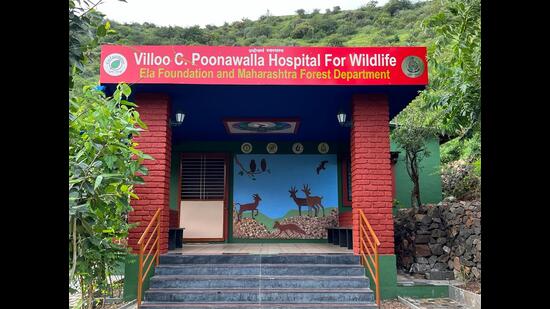Pune to get a new animal transit centre
The soon-to-be-inaugurated hospital, which includes cages and quarantine of about 10,000 square feet, was sanctioned just before the Covid-19 outbreak
In a bid to provide timely, state-of-the-art health care to sick, injured and rescued wild animals, a new animal transit centre named the ‘Viloo C Poonawalla Hospital for Wildlife’ will be inaugurated at Ela habitat, Pingori, Purandar taluka, Pune, on September 30. The transit centre is a joint venture (JV) of the Ela Foundation and Maharashtra forest department, and is supported by Dr Cyrus S Poonawalla, chairman and managing director, Serum Institute of India (SII).

Asha Bhong, subdivisional forest officer, Bhor, said, “This transit centre is much needed for there have been many incidents in Bhor where animals and birds have been found grievously injured, and there is no hospital close by. Sometimes, the forest department gets injured chinkara and other wild animals from areas around Purandar, Bhor and Velha and also from the outskirts of Pune. Some suffer natural injuries while others are often hit in road accidents or chased by stray dogs,” The area is home to hyaenas, chinkara, peacocks and owls.
Cyrus Poonawalla said, “I am happy to be part of this project for it is important to protect our wildlife and especially vultures that are very important to the Parsi community. With this hospital, we will be able to continue in situ breeding and rescue of vultures as well as other wildlife.”
The soon-to-be-inaugurated hospital, which includes cages and quarantine of about 10,000 square feet, was sanctioned just before the Covid-19 outbreak. Subsequently, with generous support from the SII, construction of the hospital was completed. It offers state-of-the-art diagnostic and medical care, and facilities such as radiology and imaging, pathology, examination, operation theatre, nursing, sterilisation, kitchen and food preparation, quarantine recovery and treatment (squeeze cages, transfer cages), and rehabilitation and rewilding. The hospital has qualified veterinary specialists treating wildlife. Further, research is being carried out along with surveillance for zoonotic diseases, and the wild animal anatomy repository will be established for teaching both the veterinary and forest departments.
With natural habitats increasingly encroached by human beings, instances of man-animal conflict are on the rise. Most of the wildlife exists in rural areas, where there is a lack of state-of-the-art wildlife treatment. Sick and accident-hit animals, animals with tumours and congenital defects, animals fallen into wells and trapped in snares, once rescued, have to be transported to urban centres which increases stress and morbidity not to mention mortality. Quick, reliable health care in peripheral rural areas is critical which is why the state forest department in collaboration with Ela Foundation is opening this centre in rural western Maharashtra.





